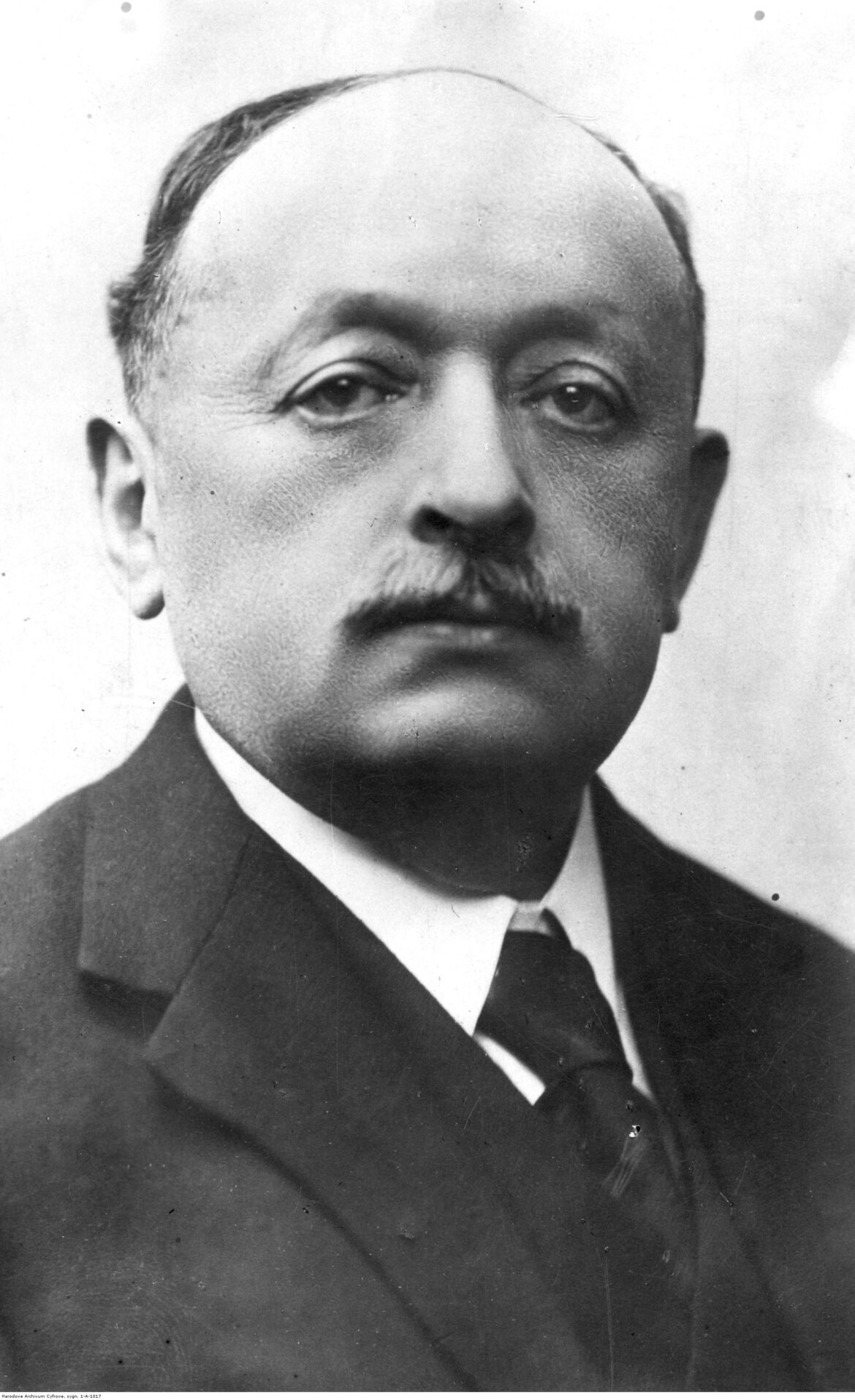Salomon (Stanisław) Posner (1868-1930) was a history- maker and one of the most distinguished Polish politicians of Jewish origin. Working for the Republic of Poland, he was always aware of his Jewish roots. The future Deputy Speaker of the Senate was born in Kuchary Żydowskie in Mazovia.
Posner’s mother, Matylda, belonged to the Bornstein family of wealthy Warsaw merchants. Father Leon was one of the most ardent promoters of assimilation in the Jewish community. Providing that changing Jewish names into Polish versions was often practiced by people assimilating with Polish society Salomon changed his name to Stanisław. He passed his childhood between the house in the countryside and Warsaw, where the family moved in winters in accordance with the customs of the wealthier social classes. The wealth of the Posners was accumulated by Stanisław’s great-grandfather – Salomon Markus Posner, who came to Warsaw from Finland and gained a salt monopoly. In 1817 he acquired Kuchary, where his family lived, running one of the first textile factories in the Kingdom of Poland. As Stanisław Posner recalled years later, his world in the countryside included a huge river (Wkra), a garden and a forest, while the great attraction of Warsaw was the gingerbreads sold in the Łazienki Park.
Posner graduated from the Secondary School in Warsaw (at Nowolipki Street), and then studied law at the University of Warsaw (then the Imperial University of Warsaw). He obtained his diploma in 1893, and until 1895, he continued his legal studies in Berlin. The poverty that he saw in the poorest working-class districts of Warsaw: Wola, Praga and Powiśle, had a huge impact on the political choices of the “Jewish count” as he was then called. Involved in the Polish socialist activity from 1888, he listened to lectures by the famous socialist activist Ludwik Krzywicki (1859-1941). Since then, he not only worked as an attorney but also was a member of the Polish Socialist Party (PPS). At that time, it endangered the right to legal practice, because such political activity was considered illegal by the Russian occupier. Polish lawyers were not allowed to associate and the Russian authorities allowed only the existence of a self-help fund. Nevertheless, lawyers maintained professional peer contacts within acceptable institutions (e.g. in the Trade Section of the Society for the Promotion of Industry and Trade).
Only the revolution of 1905 allowed them to create their own bar association. Posner was elected as one of the eight Warsaw delegates to the bar congress in St. Petersburg. He was the co-author of the petition of Polish attorneys which acceptance or rejection determined the further participation of Polish representatives at the congress. It contained the following request:
“It is necessary to grant the Kingdom of Poland complete internal legal and administrative autonomy based on universal, equal, direct and secret voting of all citizens of the Kingdom of Poland.”
During the split of the Polish Socialist Party into the PPS-Left and the PPS-Revolutionary Fraction, Posner supported the latter organization. Living in France during WW1, until 1919, he actively encouraged activities aimed at regaining independence by Poland. He gained the opinion of a reliable informant, consummate politician, great patriot and modern European. Worked for the revival of Polish education and promoted the Polish independence movement, he was the founder of the People’s University of Adam Mickiewicz in Paris in 1916. His enthusiasm to work for the Polish cause was appreciated and noticed. Stanisław Thugutt stated that Posner was seriously “infected” with Poland.
Posner regularly carried out an active correspondence from Paris, submitting his texts to Polish magazines. In his report prepared for Józef Piłsudski, he emphasized that Poland could only count on its own strength. After the Polish-Bolshevik war (1919-1920), he contributed to saving the newly created Polish state. As an anonymous author of a brochure, published several times in the years 1919-1920 (e.g. by The Workers’ Committee for the Defense of Warsaw) to raise the morale of soldiers, peasants and workers, he emphasized for the entire society, at this very difficult moment of the Bolshevik invasion “Not to meet the obligation fully is to not meet it at all. To persist and persevere – this is a task worthy of a man and a citizen”.
In the years 1922-1930, Posner was a senator of the Republic of Poland elected from the Kielce district, and from 1928 until his death he was the deputy speaker of the Senate of the Republic of Poland. Conducting a very wide range of activities, as an outstanding lawyer, he contributed to the creation of the norms of Polish local government law, dealt with international law, and did not shy away from difficult social issues. He was the author of many books and brochures in Polish, French and German on various legal and social topics. For example, he fought against human trafficking and for the rights of children, including the ban on night work and on the work of children under the age of 14 in the industry. He was one of the founders of the League for the Defense of Human and Civil Rights, established in 1921.
Despite assimilating with Polish culture, he formally remained a member of the Jewish community until the end of his life and contributed significantly to it. He was buried at the Evangelical-Augsburg Cemetery on Młynarska Street in Warsaw.





